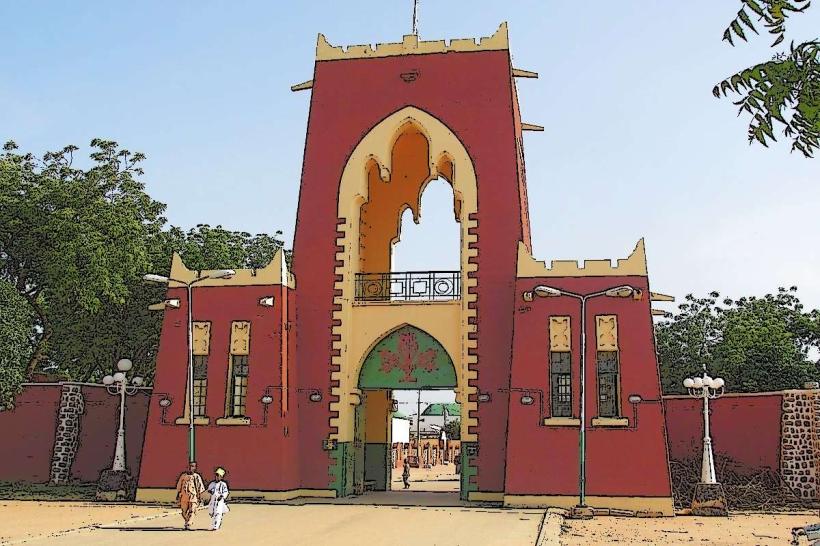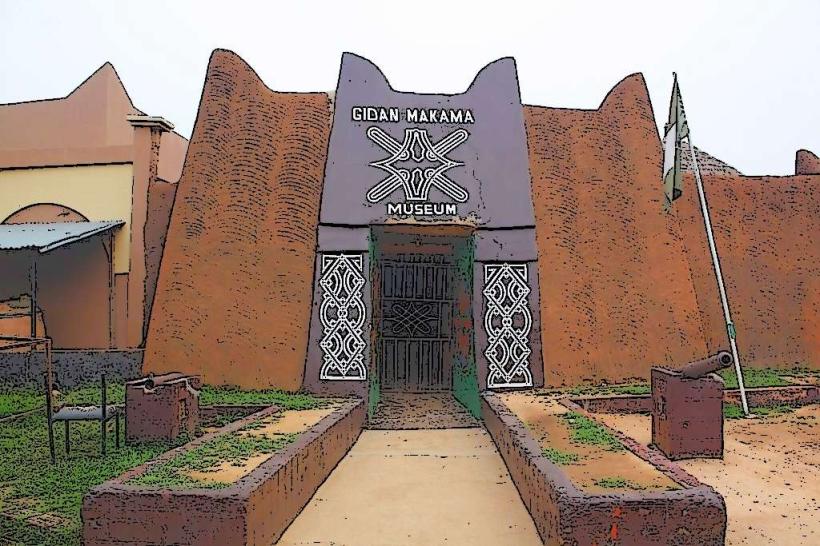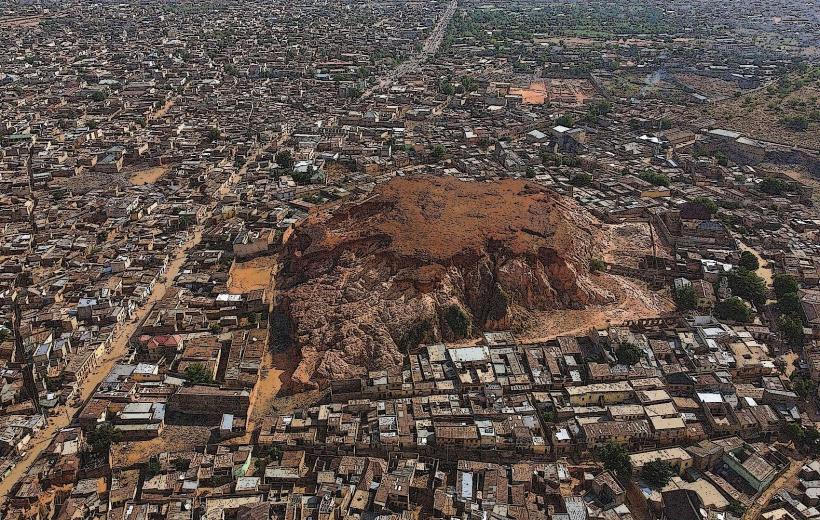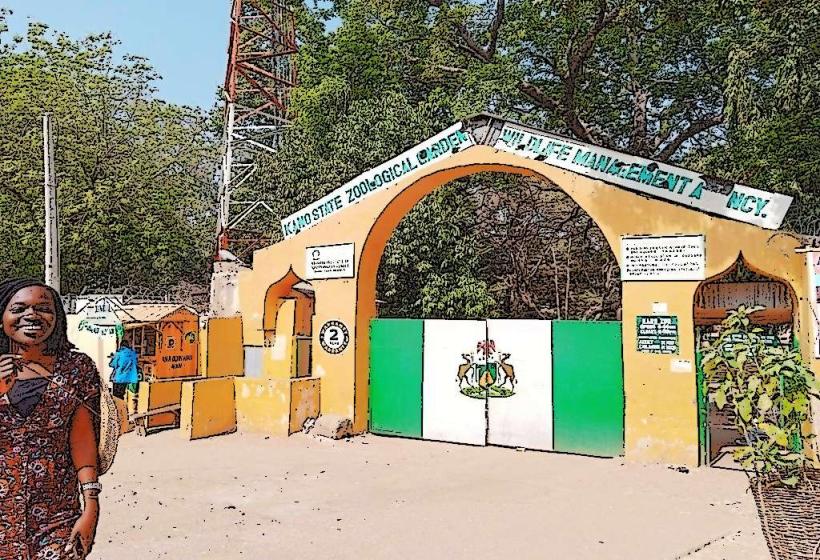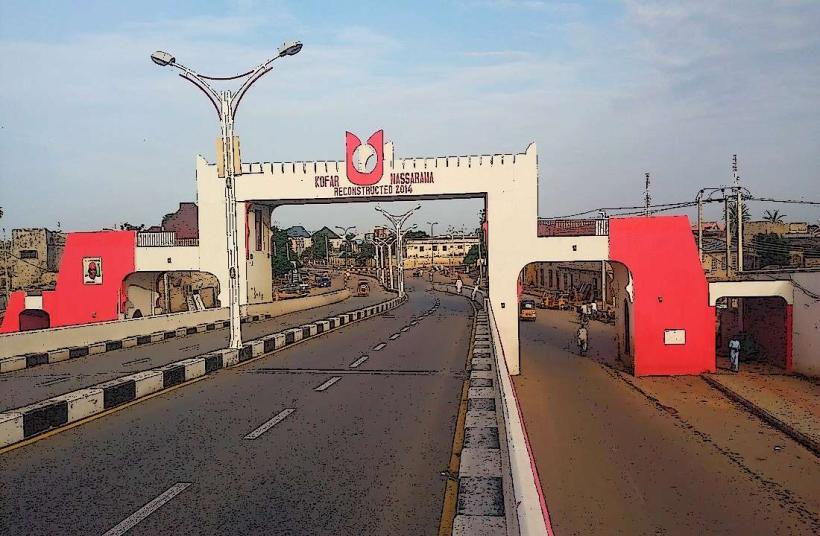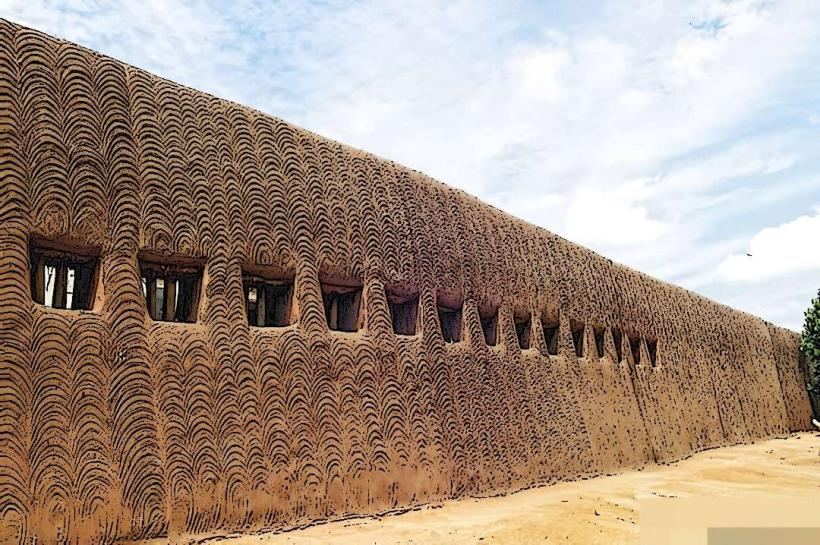Information
Landmark: Kurmi MarketCity: Kano
Country: Nigeria
Continent: Africa
Kurmi Market, Kano, Nigeria, Africa
Kurmi Market is one of the oldest and largest markets in Africa, located in the heart of Kano, Nigeria. The market is a significant cultural, economic, and historical landmark, reflecting the rich heritage of the city and the wider Hausa region. Established in 1463, Kurmi Market has been a center for trade for over 500 years.
Historical Background
Kurmi Market was founded by Emir Muhammad Rumfa in the 15th century as a trading and warehousing hub to support the growing commercial activities in Kano. The market played an essential role in the Trans-Saharan trade routes, which facilitated the exchange of goods like gold, salt, textiles, and agricultural products. Over time, the market has expanded from a modest trading post to a sprawling marketplace that covers an area of approximately 16 hectares.
Kurmi Market's long history is intertwined with the economic development of Kano, and it has seen many historical changes and influences, including its adaptation to modern commercial trends while maintaining its traditional aspects.
Cultural Significance
The market is a vibrant center for various African crafts, including:
Gold, Bronze, and Silver Work: Skilled artisans in Kano create beautiful jewelry and metalwork that reflect the region's artistic heritage.
Traditional Fabrics: Locally woven materials, including dyed fabrics, are popular in Kurmi Market. Visitors can find intricate designs and high-quality textiles.
Leather Goods: The market is known for its fine leatherwork, including bags, shoes, and belts, which are crafted using traditional techniques.
Sculptures and Musical Instruments: Visitors can also find sculptures made from wood and metal, along with traditional musical instruments, showcasing Kano's artistic traditions.
Kurmi Market is an excellent place for both locals and tourists to purchase unique, handmade goods that reflect the cultural diversity of the region.
Market Experience
Navigating Kurmi Market can be an adventure due to its labyrinthine layout. The market is filled with narrow pathways, numerous entrances and exits, and bustling crowds. It can be overwhelming for first-time visitors, so it's advisable to visit with someone familiar with the area or take a guided tour to get the full experience.
The market is a sensory experience, with the sounds of haggling vendors, the smells of spices and street food, and the colorful array of goods. Visitors can expect to find an eclectic mix of items, from everyday necessities to rare cultural artifacts.
Visitor Information
Location: Kurmi Market is situated in the Jakara district of Kano, close to the Emir’s Palace and the Kano Central Mosque. Its central location makes it easily accessible for visitors.
Operating Hours: The market is open daily, and it is best visited during daylight hours to experience the market at its busiest and most vibrant.
Admission: There is no entrance fee to Kurmi Market. However, it is customary to negotiate prices with vendors, as bargaining is part of the shopping culture in the market.
Tips: When visiting, be prepared for a busy atmosphere and the hustle of local merchants. It's helpful to learn some basic Hausa phrases to engage with vendors and make transactions smoother.
Conclusion
A visit to Kurmi Market offers a unique glimpse into the commercial and cultural life of Kano. It's a place where visitors can experience the rich heritage of the Hausa people, purchase handcrafted goods, and explore a historical trading center that has been thriving for centuries. Whether you're a history enthusiast, an avid shopper, or a curious traveler, Kurmi Market promises a fascinating and memorable experience.

